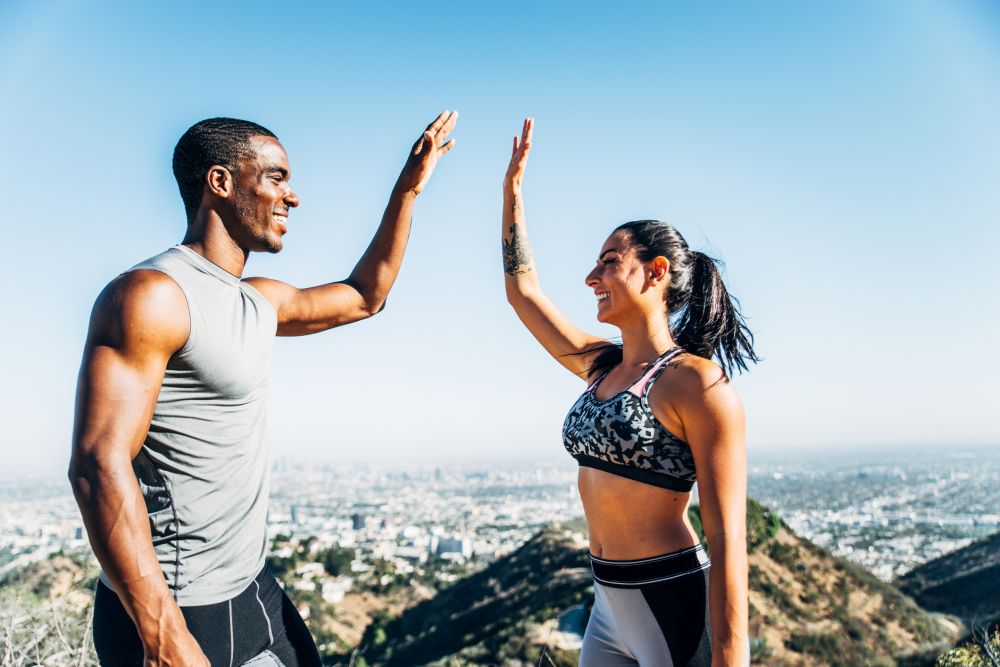Oxytocin: how the “love hormone” can help your running


If you associate the hormone oxytocin with breastfeeding, and are wondering what it has to do with running, read on.
Oxytocin, a neuropeptide secreted by the hypothalamus, is popularly known as the “love hormone,” and it courses through new moms’ bodies during childbirth and breastfeeding. But our brains release oxytocin under many different conditions, such as when we say–or receive–a kind word or gesture, compliment, or touch. It also happens during prolonged exercise. And there’s plenty of research showing powerful links between those two things.
RELATED: Six mental tricks to keep you on top of your game
https://www.instagram.com/p/Bl8QUX5FsZv/?tagged=runnersofinstagram
In a 2012 review of the research on this subject published in the Scientific World Journal, Gert-Jan Pepping and Erik J. Timmermans asserted that “the link between oxytocin, emotional contagion and the cultivation of… positive emotions is a worthwhile line of investigation for sport participation and development, as well as high performance in sport.”
One interesting 2010 study of penalty shootouts during World Cup and European Championship soccer matches (cited in the literature review mentioned above) found that shooters were much more likely to score when following a successful shooter who celebrated with arms raised in the air, than when following a goal-scorer who did not celebrate dramatically. The theory is that the sight of a teammate celebrating his goal causes a shared release of oxytocin in players’ brains, which is then followed by continued accurate shooting (by all team members).
https://www.instagram.com/p/Bl8PXFhA8hz/?tagged=runnersofinstagram
A 2008 study showed that ultramarathoners had temporarily elevated levels of oxytocin. So we can assume that our brains release oxytocin during long runs (exactly how long is not known). And animal studies have shown that exercise-induced oxytocin surges result in improved social bonding. So, taking this a step further, it’s not a big stretch to assert that the oxytocin released when humans run may result in improved social bonding while running–whether with your running partner, your club members, or running strangers you habitually greet with a smile–and (extrapolating from the soccer study) that those positive social feelings may, in turn, result in improved running performance.
https://www.instagram.com/p/Bl8O9GIgtLK/?tagged=runnersofinstagram
Consider Des Linden’s Boston Marathon experience this year, which was the subject of a Runner’s World article speculating that her generosity towards Shalane Flanagan early in the race is the very thing that helped her win. The article explains that Linden’s gesture of slowing down to wait for Flanagan after her famous potty-stop (as well as her verbal offer to support Flanagan when she was not feeling good about her own chances) would have caused a burst of oxytocin in her brain. This, in turn, gave her the ability to surge ahead, overtaking leader Mamitu Daska, who ended up dropping out.
RELATED: American Desiree Linden wins Boston marathon
https://www.instagram.com/p/Bl8OjQHgJsc/?tagged=runnersofinstagram
These things are notoriously difficult to study, and therefore prone to suspicion by those skeptical of the powerful connection not only between body and mind, but between the bodies and minds of two or more people. But consider the possibility that oxytocin may play a role in your experience of running, whether it’s your involvement with a running club, the good feelings that arise during a workout shared with someone else, or while competing with others in a race. You can be confident that when you feel good while running (whether there’s a social component or not), your brain is producing oxytocin. And you might be very surprised at just how well you run.

